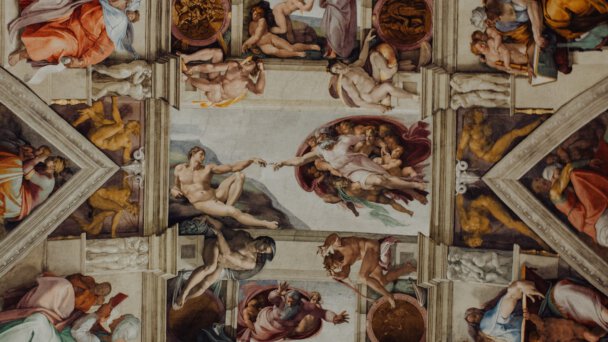Don’t Get It Confused… Love Is More Than a Feeling 
I have a memory of a younger Me talking to my mom about boys and relationships when she suddenly said to me “You know, eventually I just had to CHOOSE to love your father.” My little 13-year-old allusions about fairytales and love, that happily-ever-afters just naturally happened, that 2 people were just destined from the beginning of time to be together forever, were completely shattered and I couldn’t believe what my mom had just told me… See, I grew up as a lot of us do with fairytales, Disney movies, romance novels, and this morphed idea in my mind about what love looks like.
Don’t get me wrong, having an optimistic, “Disney-esc” view on love isn’t a bad thing, but it’s also not the full picture. We oftentimes think love to be purely a feeling. Butterflies in your stomach, the way your heart seems to stop when you make eye contact with that certain person, and as long as that feeling is there — you’re in love.
But as I went through relationships in my teenage years and high school, I realized very quickly that that fuzzy feeling doesn’t exactly last forever. Not even close. In fact, the “honeymoon phase” usually lasts only a short while. And as much as I was terrified that my boyfriend or crush would stop “loving” me, I was even more scared of the moment that I would stop “loving” them. It was inevitable, right? What if I woke up one day and just wasn’t feeling it anymore? What if they made me mad? What if someone else caught my eye? And the thing is, all of that HAPPENED… a lot actually. And I thought myself incapable of love because of this. I didn’t trust my ability to love someone because I knew my heart and I knew it was fickle.
What I remembered as patterns like this went on were those words my mom said such a long time ago that I had never understood. “… eventually I just had to CHOOSE to love…” I get more curious about this phrase as my version of loving never worked out (aka staying with a guy until the butterfly feeling went away and then ending the relationship disappointed that he obviously must not have been my soulmate if I had managed to “fall out of love” with him).
What is love?
It wasn’t until I was in my early twenties that I ever even heard the real definition of love. Dominican friar and Doctor of the Church, St. Thomas Aquinas defined it, “To love is to will the good of the other.” Love is a CHOICE, an action. And so my issue before I learned this was that I was limiting love to just a feeling. A pretty fickle feeling. And because I was well aware that that feeling had the ability to disappear at times, I didn’t trust my ability to love.
And yes, this love doesn’t seem quite as exciting. When my mom said she had to choose to love my father, a part of the reason I was crushed was exactly because it didn’t seem exciting. So sure, a love that is contingent on feelings can be exciting, but the reason things are exciting is because there is fear associated with them, too. Because that thing is risky, because it can be lost. Do you want someone’s love for you to be contingent on their feelings? Are you willing to risk that loss in exchange for just excitement? I’d exchange that “excitement” for “security” in a heartbeat. In fact it’s more exciting to be secure in knowing that someone loves you, that someone will CHOOSE to love you, than waiting around in fear that their “feelings” will go away.
It’s the initial excitement and feelings of attraction that spark love, but then it’s the choice to will the good of the other no matter how strong or weak your emotions or desires currently are, that keeps it going.
So, what does choosing to love actually look like? How can we live out this radical expression of love even in moments when we don’t feel like it?
Practicals:
- First of all, don’t beat yourself up when the inevitable happens and you start to feel things other than “the warm fuzzies.” Aka you have a misunderstanding or an argument and feel angry, impatient, hopeless, annoyed. This doesn’t mean you’re incapable of sustaining love… it means you’re human. So give yourself some grace.
- Also remember that THEY aren’t perfect. Give them grace because they’re capable of feeling the same array of emotions that you are.
- However, notice if patterns of impatience and discomfort go on for too long and evaluate if this is a relationship you should still be in. Learning to view love as a choice isn’t justification to excuse behavior.
- Security and happiness in a relationship is equal to the amount of trust you have that they will choose you, that they will choose to love you even when they aren’t “feeling it”. Just like you are striving to choose them, just as you are “willing the good of them”, you should be confident that they are doing the same for you. Equally yoked, baby.
Real love extends beyond what Disney and fairytales have led us to believe. Those stories that captivate us when we are younger are important because they awaken that inherent desire in each of us to love and be loved, but we need to realize real Love is not limited just to feelings. Navigating relationships throughout the years, I’ve found love as a CHOICE fills my heart more than my 13-year-old self ever could have imagined.
